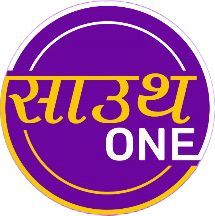In recent years, Indian cinema has witnessed a paradigm shift with the emergence of Pan-Indian films, The term “pan-Indian film” is used for a film that is simultaneously marketed and released in multiple languages like Telugu, Hindi, Tamil, Kannada and Malayalam etc. across the country, cutting across the linguistic and cultural barriers.
A trend that signifies a departure from traditional regional boundaries. As filmmakers increasingly opt for projects that appeal to audiences across the country, the concept of Pan-Indian films has become the new face of Indian cinema.
Diverse Audience Appeal
It seems that Pan-Indian films are designed to transcend linguistic and cultural barriers, ensuring a wider audience appeal. With diverse narratives and themes that resonate with people from different regions, these films have the potential to capture the imagination of viewers regardless of their linguistic or cultural background, movies like Bahubali and its sequel is an apt example for the aim to create a cinematic experience that is truly inclusive, reflecting the diversity and unity inherent in the fabric of India.
Mega Star Power
One of the driving forces behind the rise of Pan-Indian films is the casting of mega stars who enjoy a pan-Indian fan following. Casting industry giants like Prabhas, Mahesh Babu, and Yash in films that transcend regional boundaries ensures a massive initial draw and buzz around the movie. This not only boosts box office numbers but also elevates the stature of Indian cinema on the global stage.
#Salaar crosses the ₹100cr milestone & #Baahubali2 in Nizam [Telangana] in just 2 weeks.#Prabhas secures his 2nd 100cr grosser in Telangana, following #Baahubali2, making him the only actor with two 100cr grossers in the region, while no other actor has achieved even one! pic.twitter.com/TxuTmbS1d5
— Indian Box Office (@Box0fficeIndia) January 6, 2024
Their lies no confusion that audiences all over India loves the screen presence of the south Indian movies stars in movies like KGF(& Sequels), Pushpa, Salaar & Jailer while movies rooting from the south Indian Industry having leading roles been played by Bollywood stars like Shahrukh Khan Ranbir Kapoor, Shahid Kapoor , Sanjay Dutt , Arjun Rampal, Jacqueline Fernandez, Aishwarya Rai and Alia Bhatt are not just loved by northern and southern parts of India but rather the craze and fan base has increased substantially across the globe.
Technological Advancements
Advancements in technology have played a pivotal role in making Pan-Indian films a reality. High-quality production values, cutting-edge special effects, and world-class cinematography contribute to creating a visual spectacle that attracts audiences from all corners. This has allowed filmmakers to tell stories on a grand scale, breaking away from the limitations of regional filmmaking.
Also Read: Tamil Film Calendar 2024: A Cinematic Extravaganza
Global Recognition
The Pan-Indian approach has not only expanded the domestic audience base but has also attracted attention on the global stage. Films like ‘Baahubali’, RRR & ‘KGF’ have garnered international acclaim, to an extent that RRR also won OSCAR, showcasing that Indian cinema can compete at a global level. This has opened up new avenues for collaboration, co-productions, and international releases, further establishing the industry’s presence on the world cinematic map.
Followed by #RamCharan for both the Golden Globes and Academy Awards.. #NTR #JrNTR #RRR pic.twitter.com/kWCti4uHYI
— Filmy Focus (@FilmyFocus) March 14, 2023
Economic Viability
From a business perspective, Pan-India films offer economic viability. With a broader audience reach, these films have the potential to recover production costs and generate significant revenue. The simultaneous release across multiple regions ensures a simultaneous surge in box office collections, making them financially lucrative ventures for producers.
The Rise of Pan -India Cinema
The rise of Pan-India films represents a transformative phase for Indian cinema. It not only mirrors the evolving tastes of the audience but also positions Indian filmmakers as storytellers capable of creating content that transcends geographical boundaries. As the industry continues to evolve, the Pan-India wave seems to be the new norm, offering a promising future for a more unified and globally recognized Indian film industry.







